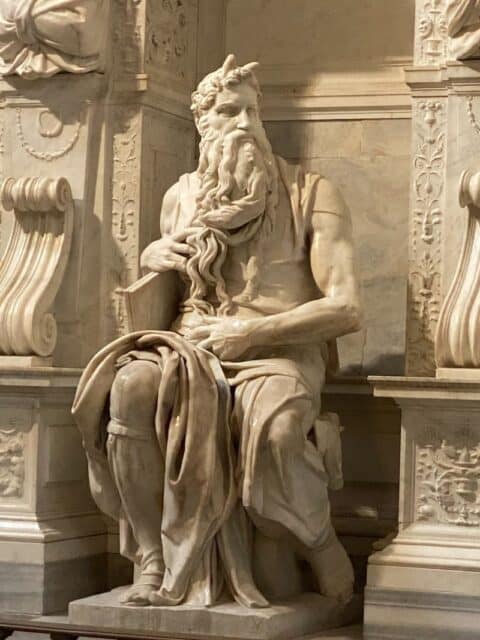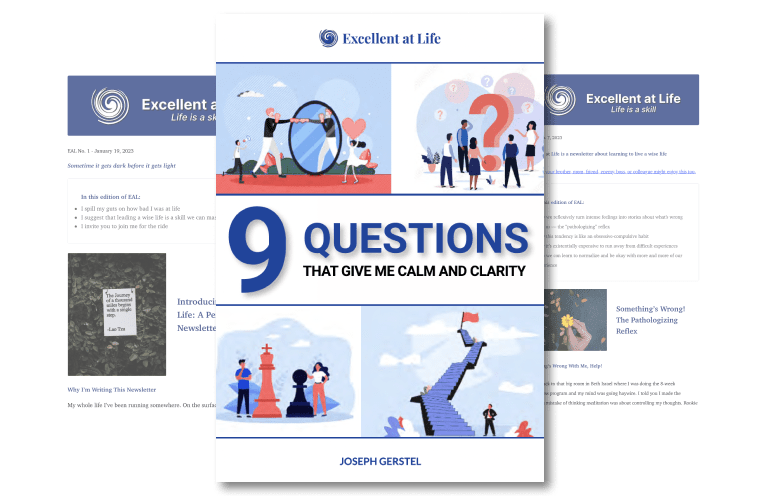Old Roots, Fresh Eyes
You may know that a portion of the Torah (as in the five books of the Old Testament) is traditionally read in synagogue every Shabbat. The Torah is split into 52 portions and so completed in its entirety every year. Its 80,000 words are written on a parchment scroll with a quill by a scribe at a cost of $50,000 or more. The “Assyrian” script in which it is written comes with no punctuation or vowelization — I’ve spent countless hours memorizing the weekly portion before reading it as the cantor.
But the script I’ve read has often been stale, seen through the lens of inherited interpretation, others’ ideas.
Last week I wrote about learning to see the beauty in my roots. With the freedom to be me, comes the freedom to look at my own tradition with fresh eyes, like arranged marriage giving way to a youthful courtship.
While the cultural setting and moral norms of the people in the Book are very different than ours, the challenges of living a human life are not. The distance between us and these people wandering a Mediterranean desert 3,000 years ago is not as vast as it may seem.
The Most Humble of Men
A few weeks ago, Moshe (i.e., Moses) complains to God of the difficulty leading thousands of Jews through the desert on his own. (Israeli prime minister Golda Meir is said to have told Richard Nixon: “You are the president of 150 million Americans; I am the prime minister of six million prime ministers.” Every cab driver in Israel will tell you how to run the country.)
God tells Moshe to gather seventy men from the twelve tribes and he will impart from Moshe’s prophetic spirit upon them. Now seventy is not divisible by twelve, so two men who would otherwise have been picked remained behind. (This is a Middle Eastern patriarchal society so women were way out of the running.) When the seventy began to prophecy so did these two. Joshua, Moshe most loyal disciple, was outraged.
The final verses of the Torah discuss how Moshe was the most humble of men; this humility shines through in his response to Joshua. Are you jealous on my behalf, says Moshe, if only God would make his whole nation prophets and place his spirit upon them.
Humility is Freedom
Humility is the freedom from the trap of relative worth. It is letting go of the habit of comparing because I do not need to be better than you but can just be as I am. It is the death of ego — the mental attempt to erect some stable self in the face of impermanence — and the complete dissolution of the story of me.
Humility is profoundly liberating. If you know more than me, great! I now have someone to learn from. I cannot possibly know everything and so the existence of other people to correct me, to teach me, is a blessing.
If I am seeing clearly, when you point out something I am doing wrong, you are blessing me. When you succeed or do well I am free to celebrate you; I am lucky to have someone I can emulate so I don’t have to figure it all out myself. I can understand my own limitations and see them not as deficiencies but as opportunities to grow. I’m not jealous when you begin to prophesy for the more wisdom available the wiser we can all become.
Ultimately all our attempts to be self-important are futile, our attention-seeking a hamster wheel with no end. Moshe was a free man, free from jealousy, free of the fear that someone else may excel him. He is not threatened by others’ success, he wishes they would have what he has. He is happy to share the limelight or even relinquish it as warranted.
This is a wealthy person. This is a man to be jealous of.
It is not an accident that scripture elsewhere refers to the most humble of men as the greatest prophet. God (whatsoever that word means to you) is always talking; it is our limiting stories that don’t let us hear him. Prophesy is not about mystical foretellings of the future, it’s about opening to the simple divine radiance shining through you right now.
We are too scared to see how beautiful we are.
Joseph



